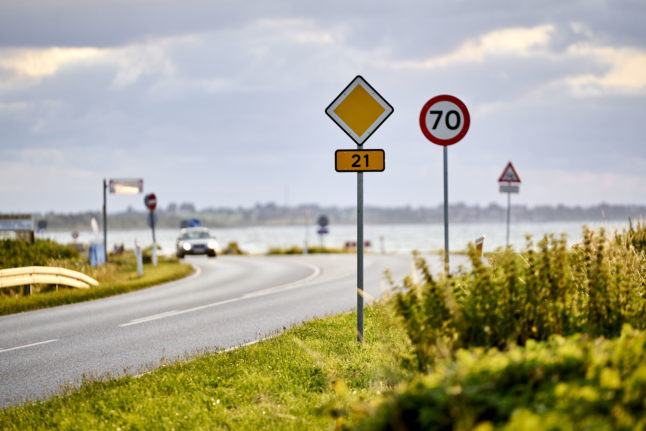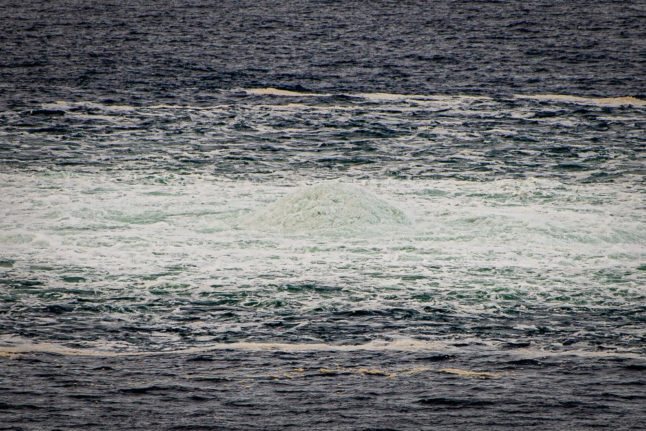The Kremlin on Wednesday dismissed the media claims as a “mistake” and “without basis”, reiterating its appeal for “a transparent and impartial international inquiry” into the sabotage of the Baltic Sea Nord Stream gas pipelines in September 2022.
A joint investigation conducted by public television stations NRK in Norway, DR in Denmark, SVT in Sweden and YLE in Finland claimed Moscow is using dozens of military and civilian vessels to collect information on wind farms and communication cables.
A documentary based on the investigation, Skyggekrigen or “Shadow War”, was released on Wednesday.
The report cited intelligence officials in the Nordic countries.
The Russian spy programme is known by the acronym GUGI, or the Main Directorate of Deep-Sea Research, according to DR.
One ship documented was the Admiral Vladimirsky, officially an oceanographic research vessel, that was observed sailing near large offshore windfarm parks off Britain and Denmark at the end of 2022.
When a DR team approached the vessel in a dinghy, masked and heavily-armed men appeared on deck, an excerpt published by the Danish broadcaster showed.
Russian intelligence is also accused of using fishing trawlers, cargo ships and even yachts kitted out with underwater and radio surveillance technology, the investigation claimed.
The documentary, titled “Shadow War”, says Norwegian police who boarded two Russian fishing trawlers discovered old Soviet-era radios, with an operator in a locked compartment.
In Sweden, 27 suspect vessels have allegedly sailed through its waters or docked in its ports in the past five years, SVT said.
In Norway, over a period of 10 years, at least 50 Russian vessels “had the possibility to collect information clandestinely”, according to a tally based on the ships’ Automatic Identification System (AIS), NRK said.
The documentary elicited an immediate response from Moscow, which has blamed the West for the spectacular sabotage involving the explosions of Nord Stream pipelines linking Russia to Germany.
“The media in these countries have made a mistake in their investigation,” Kremlin spokesman Dmitry Peskov said.
“They prefer to once again accuse Russia without basis.”
“We would prefer that they focus more attention on the attacks against Nord Stream and on a transparent and impartial international inquiry,” he said.



 Please whitelist us to continue reading.
Please whitelist us to continue reading.
Member comments